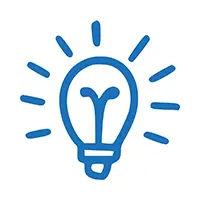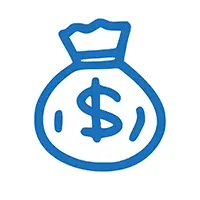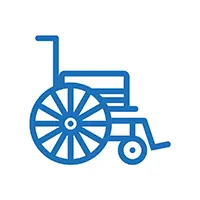Published 02 November 2023

“Enabling Good Lives is a movement to help shift power and authority from government to disabled people and whānau, says Dr Carey-Ann from Enabling Good Lives Leadership Group.
New Zealand Down Syndrome Association (NZDSA) and Firstport (National Disability Information and Advisory Service) co-hosted their first-ever hybrid conference event as part of Down Syndrome Awareness Month. The two sessions helped inform and engage our community on supported decision-making, with a particular focus on our Down Syndrome community.
The ‘With US, Not For Us’ themed sessions allowed people to attend digitally from around Aotearoa and in person at the Easie Living Store in Palmerston North. Session one was focused on understanding professional insights, and session two was hearing from our community and the impacts of living with supported decision-making.

Dr Carey-Ann from EGL
Session one: Exploring Supported Decision-Making introduced Erika Butters from the Personal Advocacy and Safeguarding Trust, Peter Allen and Dr Carey-Ann Morrison from the National Enabling Good Lives Leadership Group.
Erika Butters brought her knowledge as an Advocacy National Director from the Personal Advocacy and Safeguarding Adults Trust. She shared who might want supported decision-making and how to make it happen.
“There are lots of reasons why a person might need support to make decisions, it could be a learning disability, the impacts of neurodiversity, a communication impairment or due to mental health impacts. “
“Safeguarding is an approach to supported decision-making that puts the person at the center.”
Instead of 'substitute decision-making,' where a support person uses their own judgement to make a decision on behalf of someone, supportive decision-making follows a mana-enhancing process to help people their own decisions.
Read more about taking action on supported decision-making on Firstport
Peter Allen and Dr Carey-Ann Morrison built on Erika’s korero by sharing the approach of safeguarding and its connection to Enabling Good Lives (EGL).
“EGL is a social movement and response to the oppression and discrimination of disabled people,” says Carey-Ann.
“There are similarities between EGL and safeguarding. When these concepts are enacted and enacted well, it ensures disabled people and their family's rights are upheld.”

Patty receiving a koha.
“It’s about giving people skills so they can have a true voice,” says Peter. “We have to make sure we are out there doing development to build people’s capacity and capability to decide.
“Voice is more than being heard; it’s about the ability to exercise decision-making,” the pair explained.
“To make a decision is a skill and something we are not all born with, it’s a muscle we need to be able to grow,” says Carey-Ann.
Keen to learn more? Watch Peter and Carey-Ann in action on the recording.














